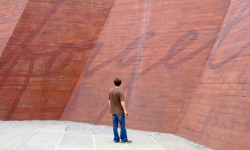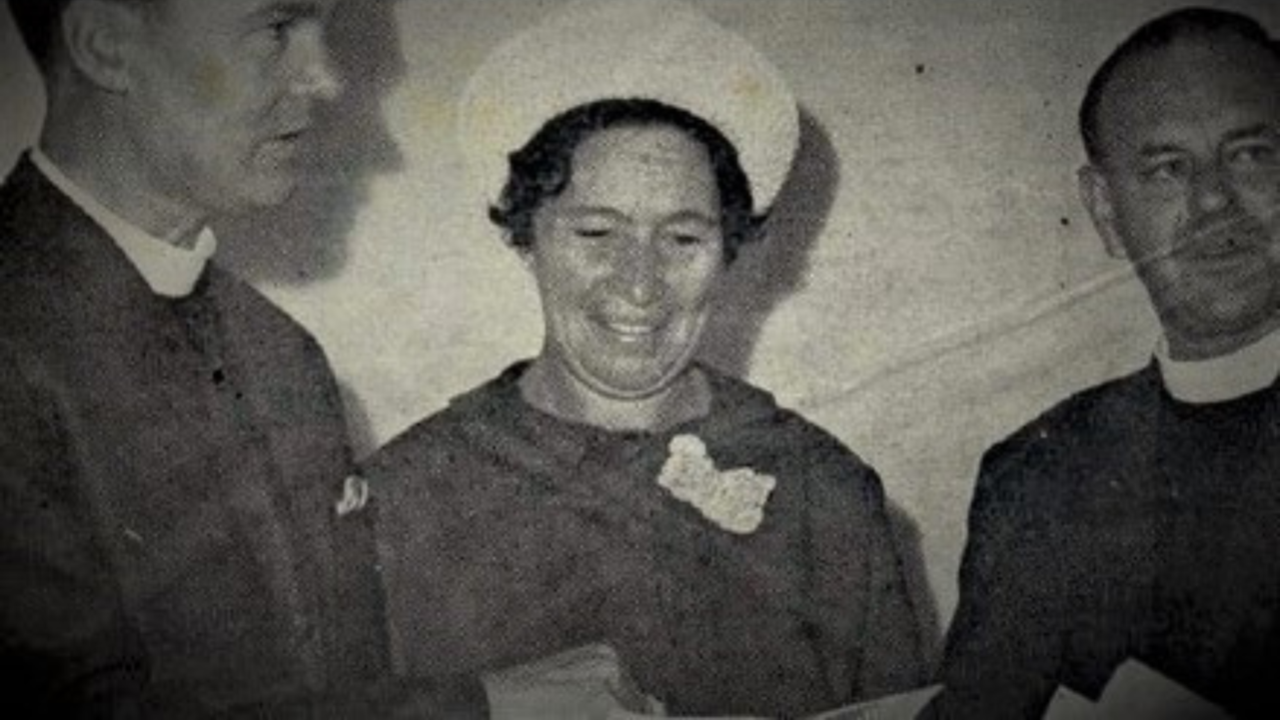
Pakotai, Parakao and Titoki are marae and farm settlements on the inland road between Whangarei and Kaikohe, and that is where Mere was born in 1922. We do not have the names of her parents, and she was brought up by grandparents, but she grew with Te Reo Māori, apparently not discouraged from speaking it, and identified as from the Ngapuhi iwi.
It is still isolated farmland along a stream with forest a step back from the farms. It must have been very isolated in Mere’s day with a small and familiar primary school. For high school? Perhaps lengthy school bus trips every day, but Mere did receive an education. During the 1920s and 1930s Sir Apirana Ngata was encouraging and enabling Northland Māori communities into dairying and improved agriculture. This must have helped Mere’s people too, and most marae had a church.
As a mature adult Mere described herself as led by God from the simplicity of very rural life in the Pa. She was converted at the age of twenty, and right from the beginning felt a call to serve her people.
Mere served for some time as a Christian worker with a non-denominational United Māori Mission hostel in Auckland, guiding and encouraging young women who moved to the city to study or work.
Mere much later moved to Hastings where her Christian work focused on Sunday School and on visiting homes. Mere had already done effective ministry in the district for several years, when Baptists in Hastings officially recognised her ability and her heart that Māori people get to know Jesus. In 1967 they appointed her a deaconess in the Hastings Baptist Church.
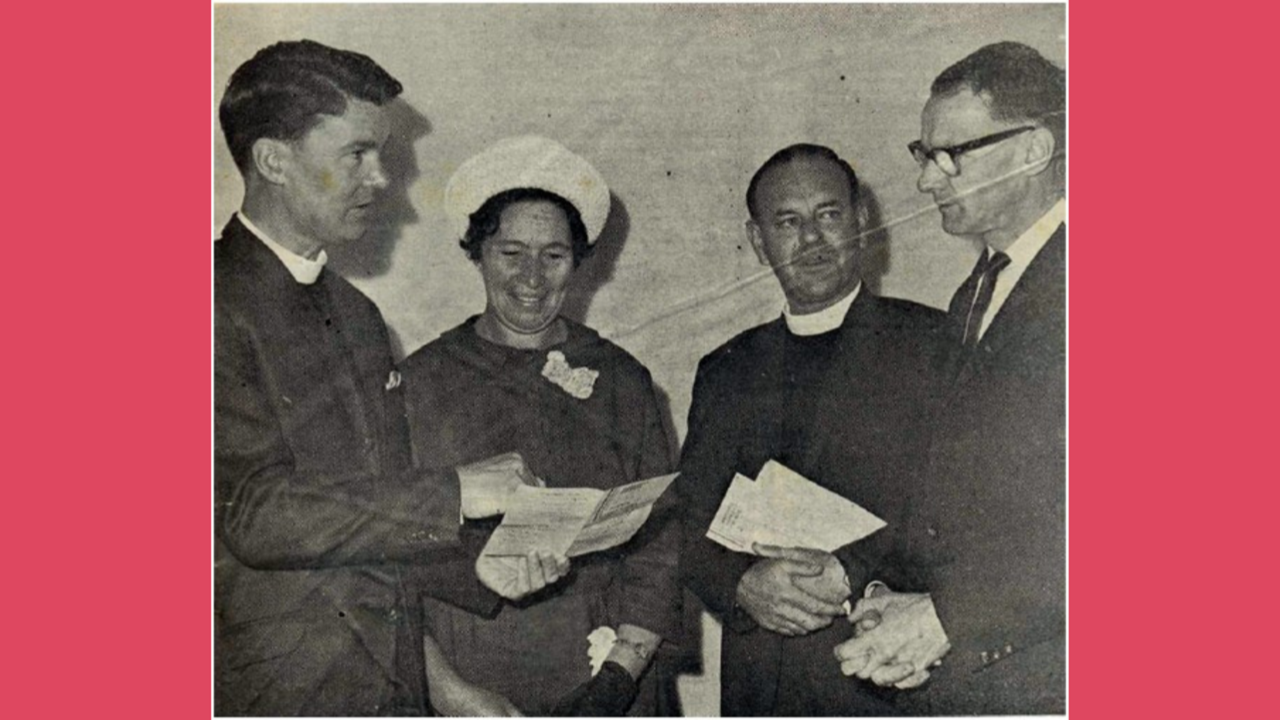
In Hastings, Induction of Mere Pou as Māori Deaconess, with Rev GT McCann, Rev Roy Bullen, Rev Des Jones (Field Superintendent, Māori Department)
This was an historic move since she was the first Māori appointed for full-time Māori ministry within the Baptist church. She was supported in this by both the local church and by Te Runanga, the Baptist Māori Board at that time.
At her commissioning Mere said, ‘I am not ashamed of the Gospel of Christ,’ and spoke in Te Reo Māori to her own people. A large group of Māori were present, for it was seen as a big occasion for Māori when she was appointed. The Baptist reporter wrote of it, ‘All were moved at her deep sincerity and the charm of Christ evident in her personality.’ A special feature of the service was the beautiful singing from trios of junior and senior Māori Bible Class members.
Mere had much to offer. She was gifted in one-to-one Bible studies and used this as part of effectively nurturing young Christians. People found she had a straight approach and they knew where they were with her, and what she was teaching.
Another feature, popular with so many, was her hospitality. She was an evangelist at heart and supported any she could as disciples with her hands-on ministry. She welcomed people ever so warmly to her home, and they loved her sense of humour and her enthusiastic following of rugby and cricket.
There were eight years working for God in Hastings and the work flourished and soon needed a van. The long-wheel base Ford minibus could take 30 children.
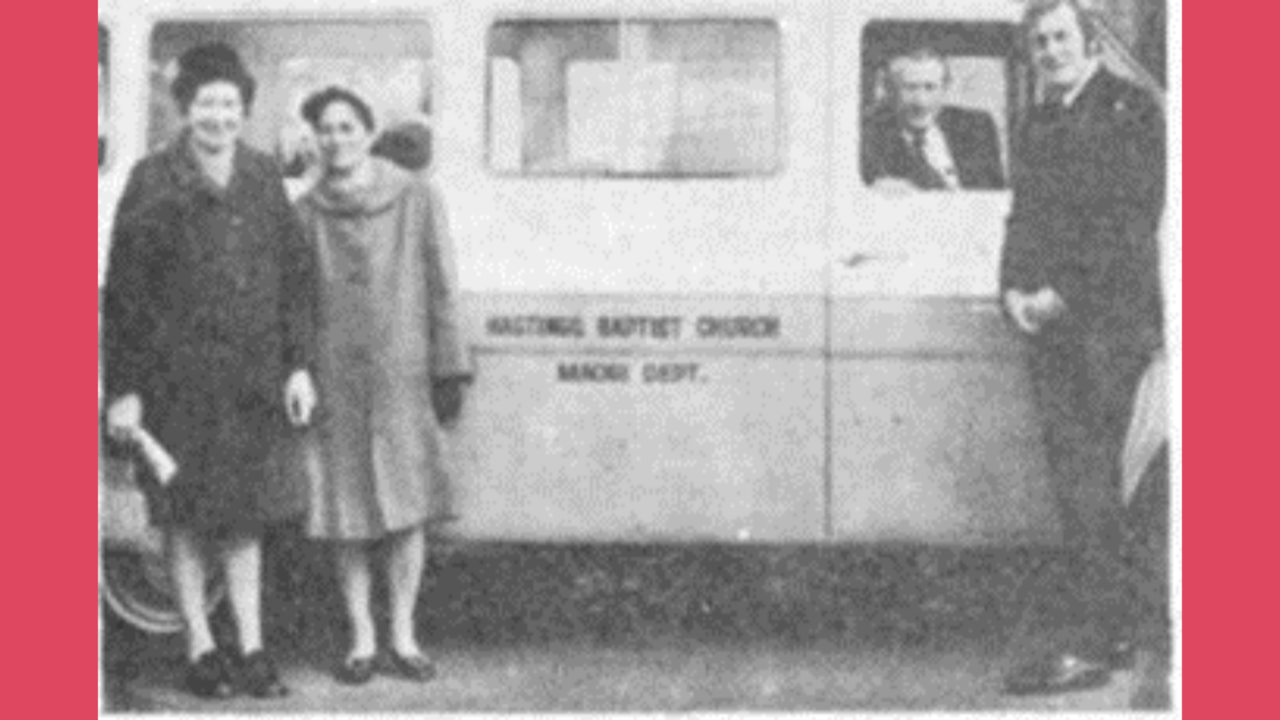
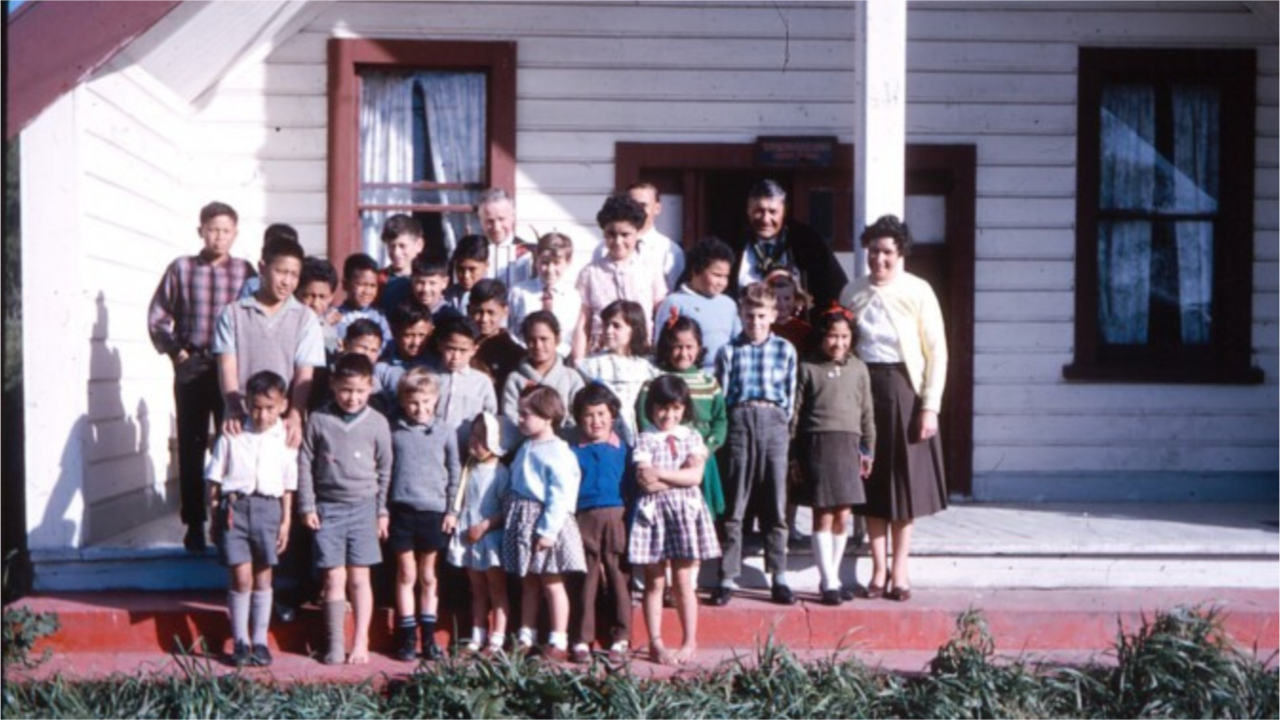
The Bible classes grew—Monday evenings for all and Sunday afternoon for girls. Here is an excerpt about Mere’s Bible Class.
It was Monday evening outside the Youth Hall and the boys were snatching a minute or two of marbles before Bible Class. Once inside everything was right on the target. Miss Pou led the singing with choruses and hymns and the groups went off to their classes.
The evenings consist of Bible study. There are no tricks, no gimmicks, no games (except at the special social), no fish and chips, just the study of the Bible and Christian doctrine. And the young people come, week after week, eager to hear the Word of God. Everything is right on the target.
‘Is this funs or keeps?’
‘Keeps!’
‘When you play marbles it’s for real. Bible Class is not funs either. It’s for keeps. It’s for eternity.’
A report of a July 1973 camp told that many people gave unstinting help at the Camp which had as missioners, Mr and Mrs Charlie Joe; and Camp Mother, Sister Mere Pou. This was an occasion for rejoicing with eight definite decisions made to follow Christ.
Then in 1975 Mere moved to Gisborne where again her energy made a difference and she saw a vigorous Māori group established. Pastor Brian and Noeleen Meadows moved to the Gisborne Church in 1978 and Noeleen comments with delight, ‘They did what Mere said. The children obeyed her. She was quiet but commanding. If she told the people to bring a plate, they did.
‘Take, for example, the ladies’ home group on a Tuesday. I might be there but Mere was leading. She had the ability to make things that happened in the week and that seemed ordinary, into something special that would benefit the women.’
Mere lived in a small house. She had never married. But then one hears the surprising report that Mere fostered several children while in Gisborne. She was most unassuming and stood back, especially among Pakeha, but she had authority. Her friends said, ‘We’ve got to watch it with Mere. We do what she says.’ Others recall, ‘When Mere spoke she commanded attention. She was a leader among her peers.’ Mere’s mana was high.
Children too respected Mere and called her aunty. She could draw Māori together to find unity, and for them she was sister. A visitor might not notice her initially, with her dark dress and quiet manner, but Mere had a saying that ran deep as to who she was. She used to say ‘for the Lord…’ in a long, drawn out way. It reflected the motivation of all her service, a person who worked equally hard in the background and in the more public view.
Mere ran the Māori service for the Gisborne church on Wednesday evenings, despite being a woman, and always considered Māori culture, e.g., shoes all off at the door. Brian Meadows sometimes attended the service, but running it was all in Mere’s care. That service ran for several years until a Māori pastor was appointed in mid-1980’s, Jack Pepper.
Mere worked with the Baptist church in Pukekohe after that. This included prison work and occasional visits to Paremoremo, Auckland’s maximum security prison. Mere’s testimony was always clear, direct and given with passion. That made people listen to her. The story goes that Paremoremo inmates gave a spontaneous round of applause after Mere spoke of how the Lord had saved her.
People who fondly remember Mere from those days say now of her, ‘She was quiet and often worked in the background, but could from there, remarkably, encourage others to the front line.’
Mere retired in 1989 to Whangarei, aged 67. Joan Keyte tells a little of Mere in her retirement:
‘She lived in a unit on Kamo Road and was regularly at the Sunday evening services. On Sunday mornings Mere was out with the gospel message to the people at the marae at Whakapara, 19 km North of Whangarei.
‘Mere was a joy to meet, softly spoken, quiet. Yet in 1991 she set about organising a hui for Christian women, to be held in Whangarei at a local marae. But she died before the event. We went ahead with the hui, feeling it would be an honour to her. Mere was in her 70th year.’
The tangi for Mere was held in the wharenui at the Te Aroha Marae, Parakao, back on the road where she had grown up. Many people attended, including many church leaders and pastors. Before moving to the urupa, Rex Tito took Mere’s Bible from the casket and invited someone of Mere’s family to claim it. Mere’s namesake, a younger Mere, received it in a moving gesture. Written inside were these words: ‘The church has its calendar, Easter and Christmas, but God also has his calendar and the major event on that is the coming again of the Lord Jesus.’ That was Mere—working for the coming of the Lord Jesus.
Mere Pou kua hoki to tatou tuahine ki te Ariki. Mere, our sister in Christ, has gone to be with the Lord. Mere was a tireless worker for the Lord.
Major sources: conversations and NZ Baptist 1991, Obituary, NZB Feb 1968, November 1968. Mere was also frequently mentioned in ‘Churches in Action’ as she was requested often to speak to missionary prayer groups and women’s groups.
Main Photo: NZ Baptist February 1968. This photo and Mere with group of children retrieved from Hastings Baptist Centenary Photo page.
